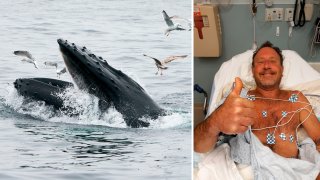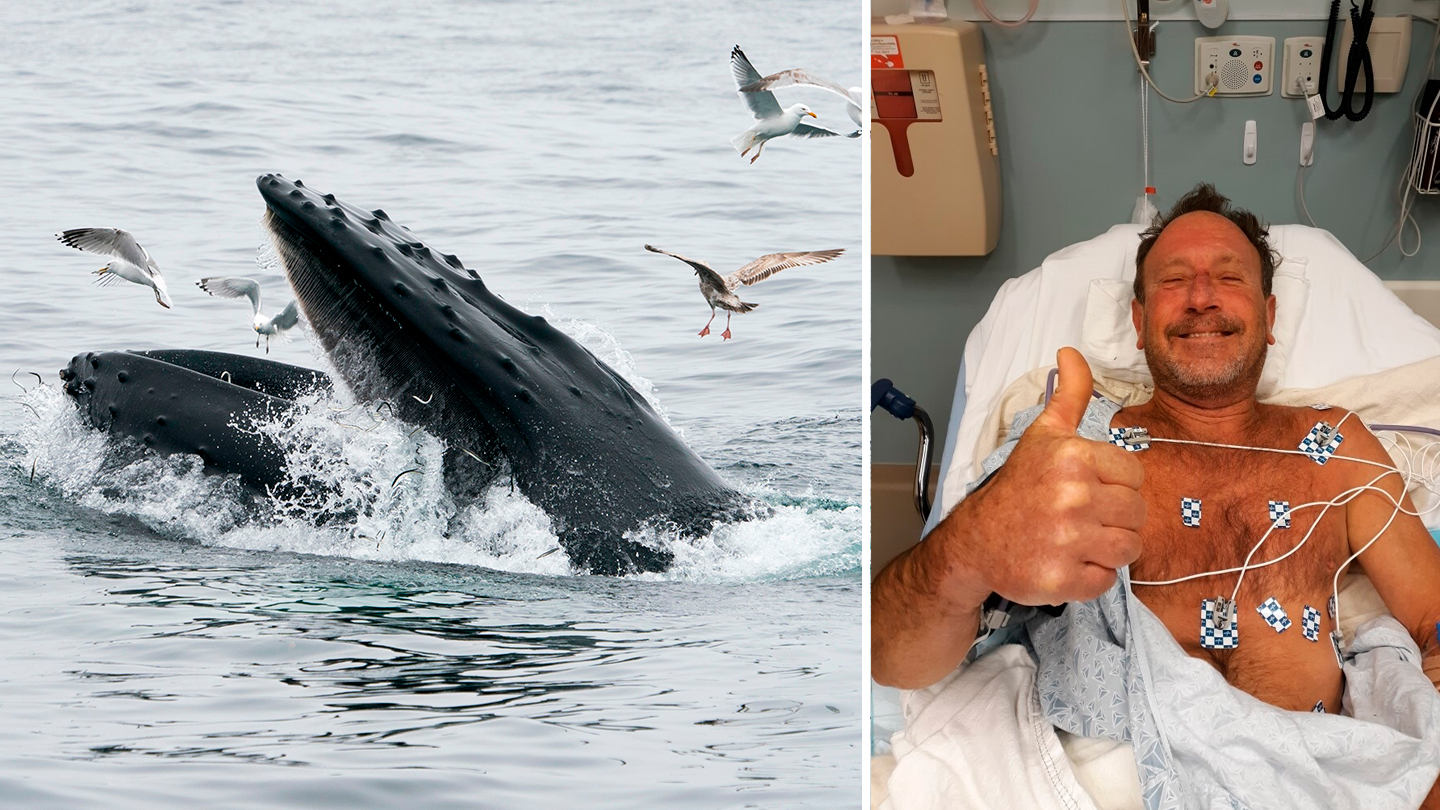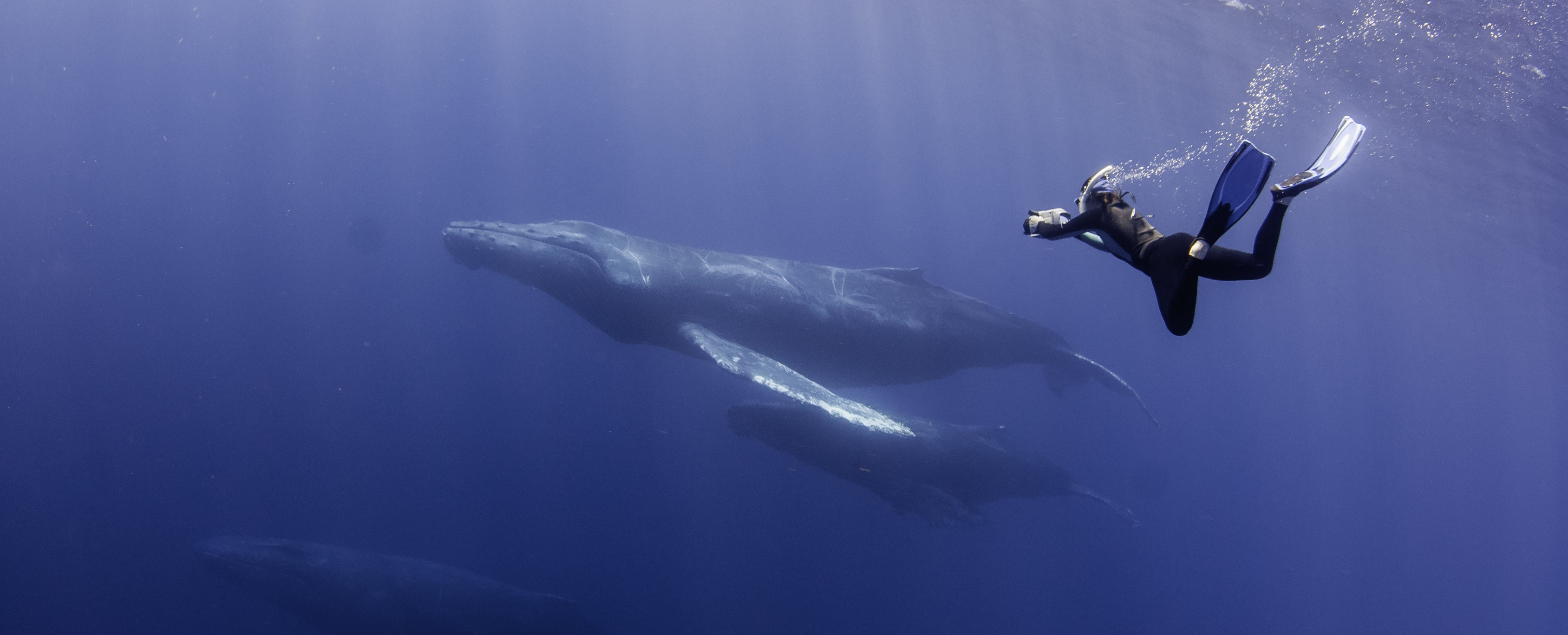
It was a whale of a tale — an underwater encounter right out of the Bible — and now it's coming to the big screen.
The story of Cape Cod commercial lobster diver Michael Packard being briefly swallowed by a humpback whale while in the water off the coast is being told in a feature-length documentary called, "In the Whale."
WATCH ANYTIME FOR FREE
Stream NBC10 Boston news for free, 24/7, wherever you are. |
The trailer includes part of the 911 call in which Packard's diving partner frantically reports the diver's injured leg and, describing how it happened, saying, "It's a long story."
The movie also shares new interviews with Packard and others in the community.
Get updates on what's happening in Boston to your inbox. Sign up for our News Headlines newsletter.
"In the Whale" is set for screenings over the coming weeks at the New Hampshire Film Festival — its debut — Mystic Film Festival, Cape Ann Film Festival and at Cape Cinema in Dennis, all featuring director-producer David Abel, a Boston Globe contributing reporter and a documentary filmmaker.
Packard has widely shared the harrowing -- and painful -- moment he realized that he was in the closed mouth of one of the world's biggest creatures, including with NBC10 Boston.
Experts have said the encounter was rare, and likely a complete accident.
Packard was in about 45 feet of water when "I just felt this truck hit me and everything just went dark," he's told NBC10 Boston.
At first he thought he'd been eaten by a white shark -- the feared sharks have become fixtures off the coast of Cape Cod in the summer -- then he realized it didn't have teeth: "I said, 'Oh my god, I'm in the mouth of a whale.'"
Packard's crew mate Josiah Mayo was driving the boat and following him on his dive.
"It was just a huge splash and kind of thrashing around," said Mayo. "I saw Michael kind of pop up within the mess and the whale disappeared."
Harbormaster Don German said at first he didn't believe what he was hearing when he got the call about the incident.
"Honestly, we all kind of thought, 'OK, this is far fetched,' but then, when we got word from the injured gentleman, we realized it was an actual incident."
Packard had been faced with an immediate struggle in the hard, shaking mouth of the whale, as his breathing regulator came out of his mouth and he had to find it. Then, as the seconds ticked by, Packard thought, "This is how you're going to die. In the mouth of a whale."
He didn't know if he would be swallowed or suffocate, he said, and he thought about his 12- and 16-year-old sons, wife, mother and family. "I just was struggling but I knew this was this massive creature, there was no way I was going to bust myself out of there," Packard recalled.
Then, suddenly, Packard saw light, felt the whale shaking its head and was thrown out of the water.
"I was just laying on the surface floating and saw his tail and he went back down, and I was like, 'Oh my god, I got out of that, I survived,'" he said.
His sister, Cynthia Packard had told the Cape Cod Times that Packard was taken to Cape Cod Hospital with at least one broken leg after the encounter Friday morning.
"What a way to become a celebrity, huh?" his mother said as he gingerly sat down to speak with reporters Friday afternoon.
Listen to our free podcast, "Shark Tales," which explores the world of sharks in New England with our partners at the Atlantic White Shark Conservancy. It's on Apple Podcasts, Spotify or wherever you get your podcasts.
Charles “Stormy” Mayo, a senior scientist and whale expert at the Center for Coastal Studies in Provincetown, told the Cape Cod Times that such human-whale encounters are rare.
Dr. Jooke Robbins, who directs the center's humpback research, agreed, saying in a statement released Friday that whales feed by lunging through the water, mouths wide open, to engulf schools of fish and then filter the water through their baleen.
"If something lies directly in the path of a lunge feeding humpback whale, the whale might not always be able to detect it or avoid it in time,” he said. "For example, some entanglements in fishing gear begin this way and can threaten the life of the whale."
He called Packard's whale encounter a good reminder for others to stay away from whales as much as possible in their habitat.
Packard's knee was dislocated and he had soft tissue damage, he said, but despite the extremely painful experience he said he plans to go back to diving for lobsters, a job he loves, as soon as possible.
This wasn't his first brush with death, he said. He was in a plane crash in Costa Rica more than 10 years ago. Other people died in the crash, and he said he was near death when he was found in the jungle after two days.
"In Costa Rica, they call me Milagro Mike, and now I'm times two, here," he said.



